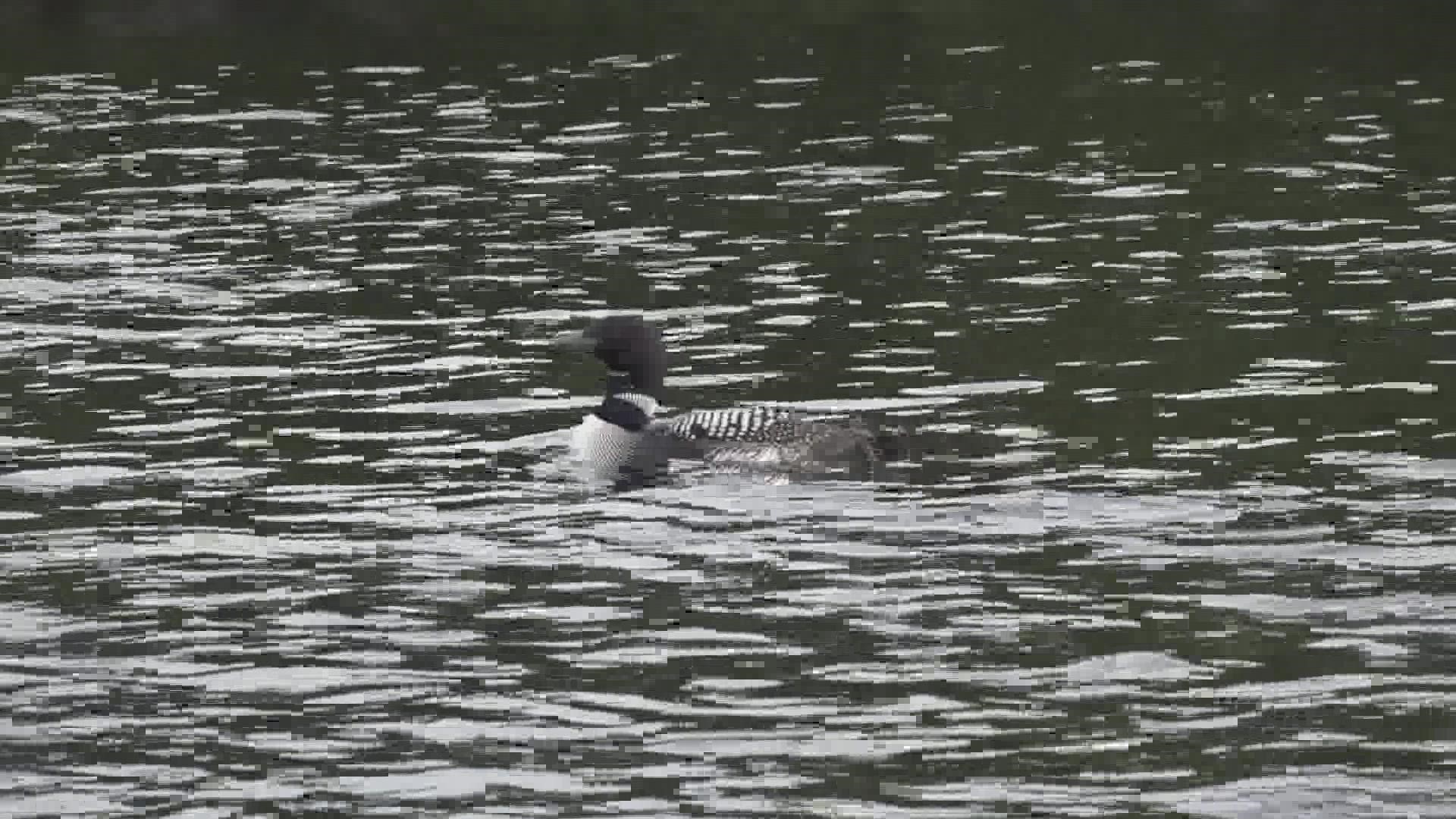BELGRADE, Maine — On Long Pond, Dick Greenam knows where to find the loons. He’s leading the Belgrade Lakes Association's Loon Preservation Project and has a passion for the beautiful birds with the incredible, echoing call.
“It's just the eerie sound, the yodels and wails late at night. Those are the sounds that get people going," Greenam said.
Loons are an essential part of summer on countless Maine ponds and lakes, part of the state’s image and appeal to visitors.
But the changing and warming climate poses some risks and challenges to loons, according to wildlife biologist Danielle D’Auria, who is the water bird specialist for Maine’s Department of Inland Fisheries and Wildlife.
D’Auria said adult loon populations are in generally good shape right now, though there is some risk from avian flu and a disease called avian malaria, which was found in at least one Maine loon several years ago and had not been seen in Maine before.
Avian malaria, D’Auria said, is believed to be transmitted by a mosquito from southern states, likely making its way to Maine because of rising temperatures here.
But loons face other climate risks here as well, the biologist said, including storms that could make it harder for the birds to raise their chicks.
“More intense storms, with lots of rain, something so fast things start to flood," D’Auria listed. "Loons nest very close to shore because they can’t walk on land very well and so are vulnerable to flooding."
She said those floods could submerge nests and eggs, resulting in fewer chicks being hatched.
Some bird experts have predicted that loons, which are a cooler climate bird, may gradually migrate northward over time, meaning Maine could see fewer and fewer of them.
D’Auria said the relationship between loons and climate change is not that simple, though she added there is certainly a risk to the birds.
“It's more complicated than that, and nuanced. And there could be areas and populations that get affected. There has been research from New Hampshire showing decreased productivity with increased temperature and increased rainfall," the biologist said.
Greenam said he and others on the Belgrade Lakes have seen what appears to be fewer eggs hatching and fewer chicks surviving, though not all the reasons are clear.
“Great Pond, which is next door, two years ago only had one egg, one chick that fledged, reached 12 weeks of age, and flew off," he said.
Asked if those egg numbers are enough to sustain the current size loon population, he had a simple answer.
“No, it's not,” he said.
For now, Maine’s loons generally appear healthy, D’Auria said, but she continues to watch them carefully.
When asked if Maine will have a healthy loon population 50 years from now, D'Auria had this to say:
“I would like to think they will. Maybe we won’t have as many. It's so hard to predict. And animals are adaptable, too. And that’s the beauty of saying maybe there will be genetic variations, and those individuals will be able to adapt and pass that on to future generations.”

